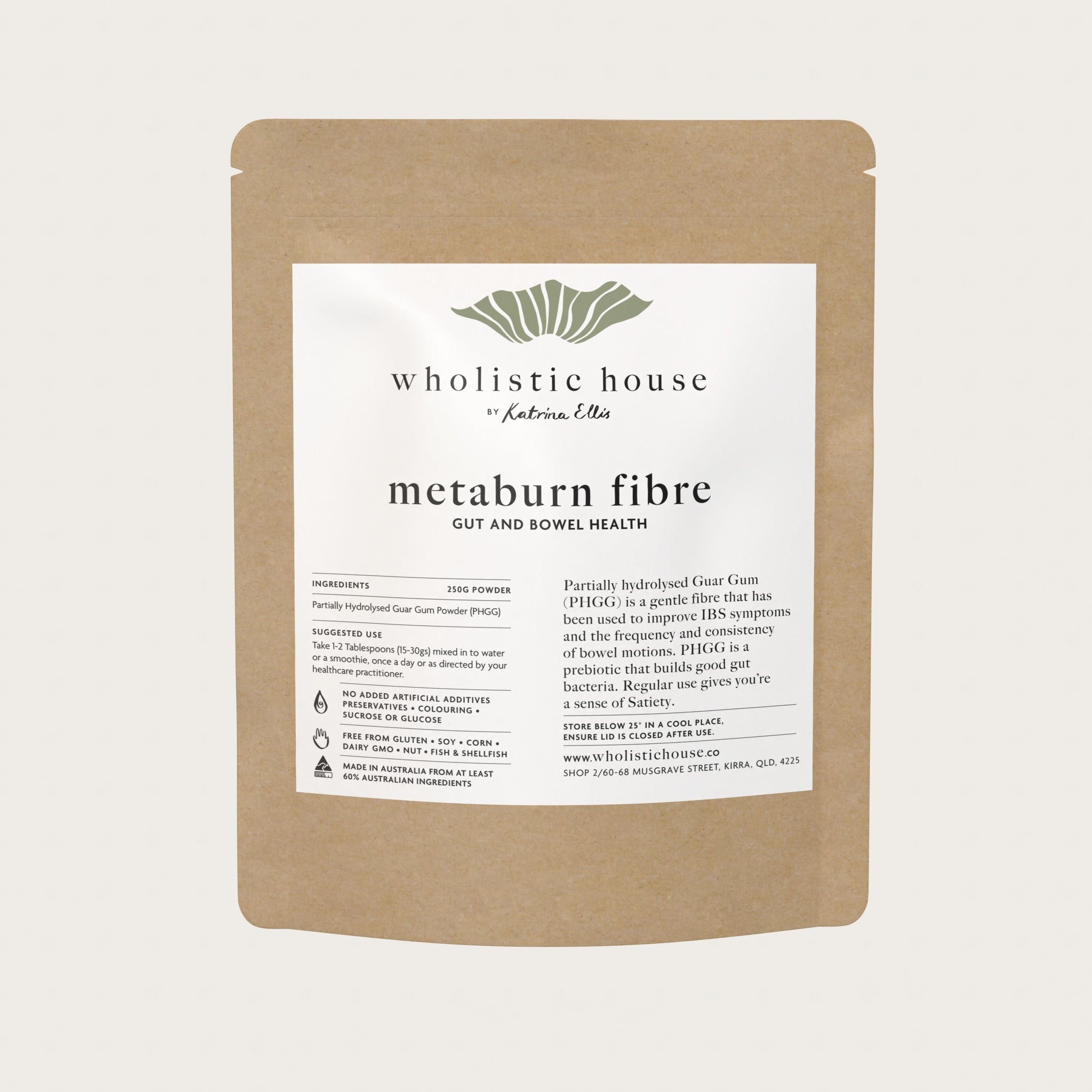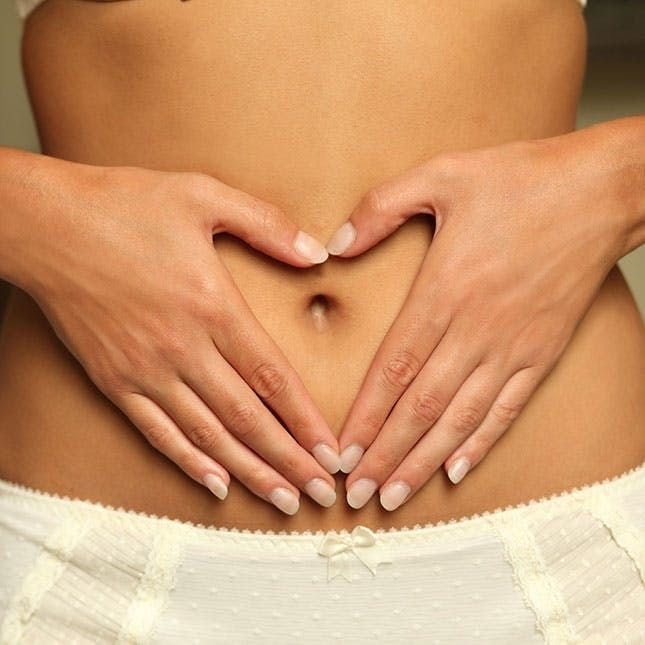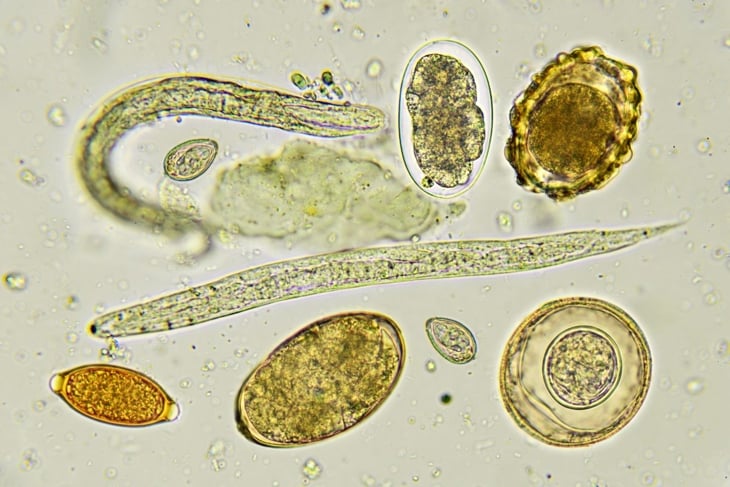
BLOAT-FREE- A naturopath's guide to kicking the belly bloat for good
Naturopathic Doctor, Master Herbalist, Iridologist, Author, Holistic Healer
There is nothing worse than slipping into a gorgeous dress only to feel your belly bulge, shattering your dreams of looking fabulous. This swelling in the stomach can stem from several factors, such as dietary choices, depleted stomach acid, enzyme deficiencies, sluggish bowels, parasites, bad bacteria, hormonal imbalances, constipation, and so much more.
Discovering the cause of your 'tummy bloating' is essential for effectively relieving discomfort and achieving the flat tummy we all dream of. Below are some of the drivers of abdominal bloating to help you locate your cause, alongside great advice to help you kick the bloat for good.
Diet: The type of foods you eat can impact the amount of bloating you experience. Eating too many legumes and beans rich in lectins can drive large amounts of gas and bloating. Lectins are a type of protein that humans find difficult to digest, and they often pass directly into the colon, where they interact with gut bacteria, causing gas, bloating and lots of fermentation. However, if they are soaked overnight, cooked and/or fermented, the lectin content can be broken down, making them easier to digest. Drinking fizzy drinks can release gas into the digestive system, causing bloating. Overeating gluten, sugar, and dairy products is another cause of bloating. Even normal foods like fruits and vegetables can cause fermentation if a person’s digestive processes are not working well. Still, it is important to remember that all these causes can be corrected by repairing the body's digestive system.

Swallowing Air: Eating or drinking too quickly or when stressed, chewing gum, or drinking through a straw can cause you to swallow air, leading to gas and bloating.
Constipation: When stools build up in the colon, it causes food fermentation, resulting in the production of methane, hydrogen, and carbon dioxide gases and, therefore, bloating.
Hormonal Changes: Many of us experience bloating around menstruation due to fluctuating hormone levels, particularly progesterone, which can affect fluid balance and digestion.
Gastrointestinal Imbalances: Irritable bowel syndrome (IBS), Celiac or Crohn's disease, or gastroesophageal reflux disease (GERD) can lead to bloating as a symptom. It is still important to address the causes of these conditions naturally, as they are merely signs of an imbalance that needs correcting.
Food Intolerances: Other than lactose intolerance, some people may be sensitive to certain foods like gluten, fructose, or artificial sweeteners, which can lead to bloating. It is still important to fix the cause of this, i.e., low stomach acid and leaky gut syndrome.
Overeating:
Eating large portions can overwhelm the digestive system, causing the stomach to expand and feel bloated.
Stress and Anxiety:
When you are stressed, you produce more adrenaline and cortisol, which shunts oxygen and blood flow away from digestion to the muscles to fight. This slows down digestion and can drive bloating. Chronic stress alters your gut microbiome, leading to dysbiosis, which causes excess gas, inflammation and bloating.
Parasites:
Parasites, tapeworms, amoeba, and other unwanted guests can produce large amounts of unwanted toxins, resulting in putrid gas and bloating. These need to be addressed directly by using natural parasites and anti-microbial herbs.
Gut Dysbiosis: An imbalance in the gut bacteria (such as an overgrowth of harmful bacteria) can contribute to bloating and other digestive symptoms.
Low Hydrochloric Acid: If you feel full quickly after eating, this indicates a possibility of low hydrochloric acid production within your stomach. Look for other key signs that may indicate this, like:
- Fatigue on rising (even when you sleep well)
- Indigestion
- Diarrhea or constipation
- Multiple food intolerances
- Nausea after taking supplements, particularly zinc
- Itching around the rectum
- Bloating, burping, flatulence or heartburn
- Dilated capillaries on the cheek
- Butterfly rash on face/nose
- Undigested food in stools
- Weak, peeling and cracked nails
- Iodine or zinc deficiency
Ninety per cent of the clients I see in the clinic are depleted in hydrochloric acid. Stress, worry, ageing, eating a poor diet rich in sugar, caffeine, saturated fats, sodium and alcohol and taking antacids can all deplete HCL levels.
Add a hydrochloric acid supplement or natural bitters formula rich in gentian, globe artichoke, and dandelion to correct stomach acids into your daily health regime. You could also consider drinking a small amount of apple cider vinegar (made from the mother) before meals. Always check for zinc, B12 and/or iodine deficiency to see if this is the driver.
Digestive or Pancreatic Enzyme Deficiency
If your abdominal bloating tends to come on not long after a meal or you get tired following meals, you may be lacking digestive enzymes. Add a good 'multi-enzyme supplement' into your plan and increase enzyme rich foods like papaya, pineapple, mango, dark green, orange and yellow vegetables. Avoid enzyme-depleted foods like chemically sprayed foods, processed foods, white flour products, sugar, and carbonated soft drinks, as these foods will deplete enzymes more.
Microbiome Imbalance
The gut microbiome is a bustling universe of good and bad bacteria, both beneficial and harmful, that coexist in balance. These bacteria play a crucial role in metabolism, digestion and overall body functions. When bad bacteria, yeast or parasites flourish, and the beneficial bacteria become less effective or diverse, digestive issues like bloating can become common.
What is the solution to solving this dilemma? One option is to undergo a complete microbiome mapping or Comprehensive Digestive Stool Analysis (CDSA) test to determine the specific composition of your microbial species. Afterward, it's advisable to consult a qualified naturopath who can guide you in choosing the right foods and supplements to help restore balance to your microbiome.
Tests to Locate your Drivers
There are some incredible tests that we use in practice to help us locate the drivers of your bloating,
I love iridology – it shows me every areas of digestion and indicates levels of enzymes, stomach acids, bowel function etc.
A Microbiome Mapping Test – check for parasites, dysbiosis, good and bad bacteria
If you suspect SIBO – a SIBO breath test (however a microbiome mapping test should reveal this)
If you suspect hormonal drivers – a saliva or urinary hormone profile is the best
If you would like to access any of this testing please contact the clinic on 0755363113 or book online
Lifestyle Advice
Move your Body
Exercise and movement can get the bowels moving regularly, helping to release any trapped stools or gas. It encourages oxygen and blood circulation into the bowels and helps to release excess sodium via sweating.
Yoga Poses
Yoga is fantastic for bloating, and many poses stimulate muscles in the bowels, moving stools and food through the intestines, thereby evacuating gas. My favourite poses to help with this are the child's, happy baby, and cat poses.
Massage
Using essential oils like peppermint, turmeric, and fennel in a carrier oil massaged into the abdominal area can help to move stools and gas through the gastrointestinal tract, relieving gas and bloating.
Dietary Advice
The quickest way to help reduce bloating is to switch to a natural, whole-food diet free from processed foods, saturated fats, wheat, sugar, white flour products and sodium-rich foods.
Some foods can increase bloating including legumes and beans (if unsoaked), broccoli, cabbage, garlic, onion, wheat dairy products, high fodmap foods, alcohol and any fast or processed food. Try removing or reducing these foods to see if this makes a difference.
Foods that are known to reduce bloating include watermelon, lettuce, rocket, fennel, cucumber, ginger, avocado, green tea, spinach, peppermint, lemon, limes, raspberries, grapefruit, bone broth, asparagus, turmeric, papaya, kefir, kombucha, sauerkraut, pineapple, mint, chia seeds, coconut water, rhubarb, banana, blueberries, grapes, yoghurt, apples, eggplant and asparagus.
Consider implementing ‘intermittent fasting’ into your daily health regime. Intermittent fasting is not difficult. It involves only eating two meals a day and abstaining from eating over a 15 to 18-hour period. A good example is eating your first meal at 11 or 12 am and your last meal at 5 or 6 pm or alternatively eating breakfast at 9 am and then lunch at 1 or 2 pm and abstaining from dinner. This break from eating gives the digestive system a rest from constantly digesting, reducing its workload. This rest period reduces inflammation and bloating and influences the gut microbiota by increasing its diversity.
Nutrients and Herbs to the Rescue
Choosing the right nutritional supplement is essential for addressing the causes of bloating. In my clinical experience, over ninety per cent of stomach bloating results from a digestive imbalance. Therefore, it is crucial to start with the basics: improving digestive secretions, ensuring proper bowel elimination, and maintaining microbial balance.
It is always great to start by adding a good natural herbal bitters/enzyme supplement to help improve the breakdown of foods. Consider adding some good natural gut lining healers and anti-inflammatories. Some of my favourite herbs and nutrients to help with bloating includes:
Peppermint is an excellent herb known for its ability to relax the digestive system's muscles, relieving bloating and abdominal discomfort. Its carminative effect encourages the expulsion of gas from the intestines, making it a go-to remedy for issues like bloating, indigestion, nausea, gas, and stomach pain.
Ginger revered for its anti-inflammatory properties, stimulates stomach acids and enhances digestion. Giner's remarkable ability to reduce bloating is attributed to its role in breaking down food efficiently and promoting its movement through the digestive tract.

Fennel seeds have carminative properties that can relax the muscles in the digestive system easing gas and bloating.
Chamomile is especially effective in easing digestive muscle tension, providing comfort for those who may experience stress-related bloating. As a calming and anti-inflammatory herb, it is particularly beneficial for managing symptoms of irritable bowel syndrome.
Dandelion root and leaf serve as natural diuretics, helping to decrease water retention and bloating while stimulating stomach function as natural bitters. Each of these herbs offers a thoughtful approach to digestive wellness! They improve food breakdown, and with their liver-supporting qualities, they can aid bile secretion for better digestion.
Lemon balm has antispasmodic properties, which means it can help relax the digestive system muscles, reducing cramping and tightness. This often helps to relieve bloating and discomfort. It is a great carminative that can expel gas from the digestive system. It is one of the best herbs for the nervous system.
|
My Fav Wholistic House Picks |
In love, health and tummy bliss,

Referenced products







Leave a comment
This site is protected by hCaptcha and the hCaptcha Privacy Policy and Terms of Service apply.
All comments are moderated before being published.